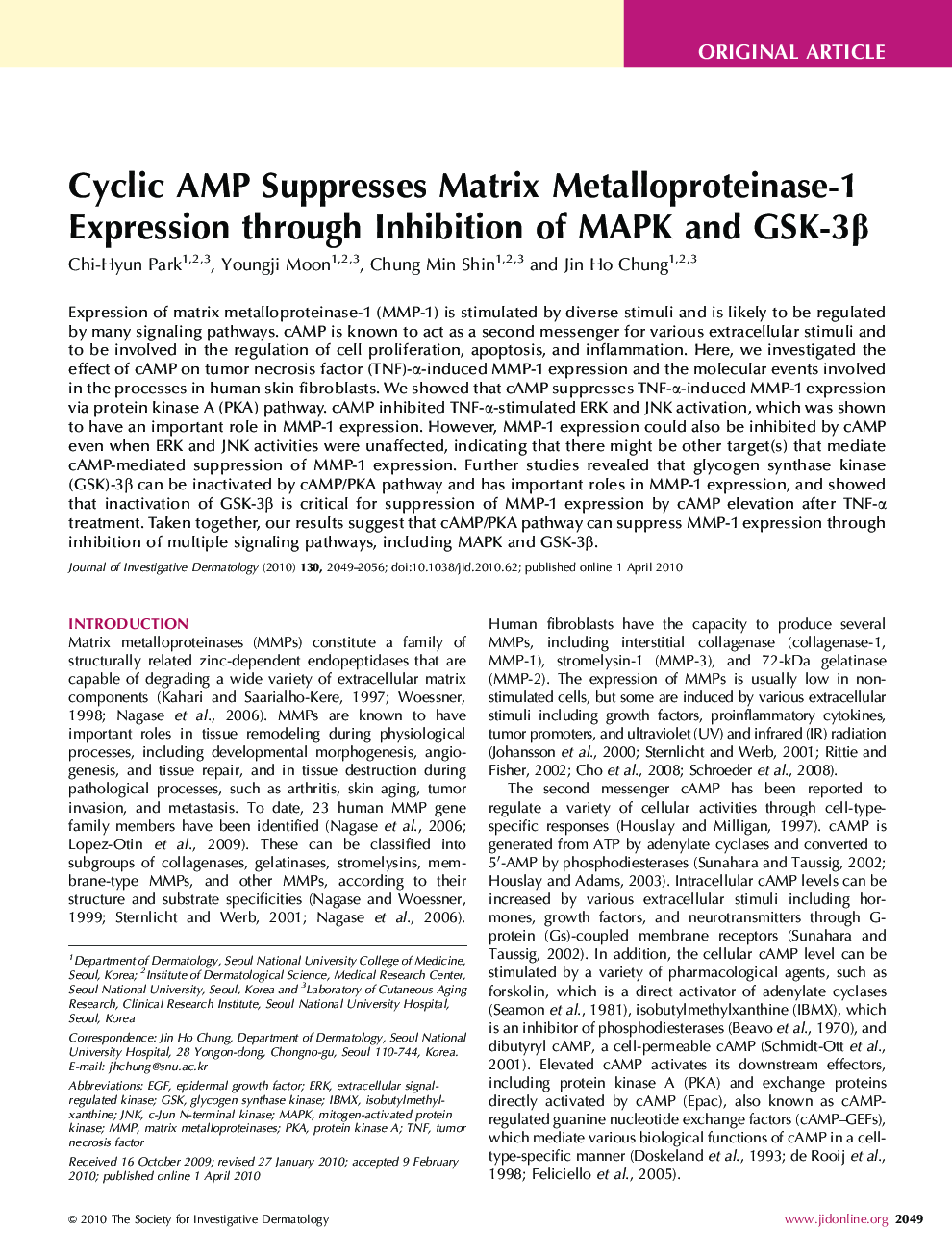| Article ID | Journal | Published Year | Pages | File Type |
|---|---|---|---|---|
| 3216960 | Journal of Investigative Dermatology | 2010 | 8 Pages |
Expression of matrix metalloproteinase-1 (MMP-1) is stimulated by diverse stimuli and is likely to be regulated by many signaling pathways. cAMP is known to act as a second messenger for various extracellular stimuli and to be involved in the regulation of cell proliferation, apoptosis, and inflammation. Here, we investigated the effect of cAMP on tumor necrosis factor (TNF)-α-induced MMP-1 expression and the molecular events involved in the processes in human skin fibroblasts. We showed that cAMP suppresses TNF-α-induced MMP-1 expression via protein kinase A (PKA) pathway. cAMP inhibited TNF-α-stimulated ERK and JNK activation, which was shown to have an important role in MMP-1 expression. However, MMP-1 expression could also be inhibited by cAMP even when ERK and JNK activities were unaffected, indicating that there might be other target(s) that mediate cAMP-mediated suppression of MMP-1 expression. Further studies revealed that glycogen synthase kinase (GSK)-3β can be inactivated by cAMP/PKA pathway and has important roles in MMP-1 expression, and showed that inactivation of GSK-3β is critical for suppression of MMP-1 expression by cAMP elevation after TNF-α treatment. Taken together, our results suggest that cAMP/PKA pathway can suppress MMP-1 expression through inhibition of multiple signaling pathways, including MAPK and GSK-3β.
